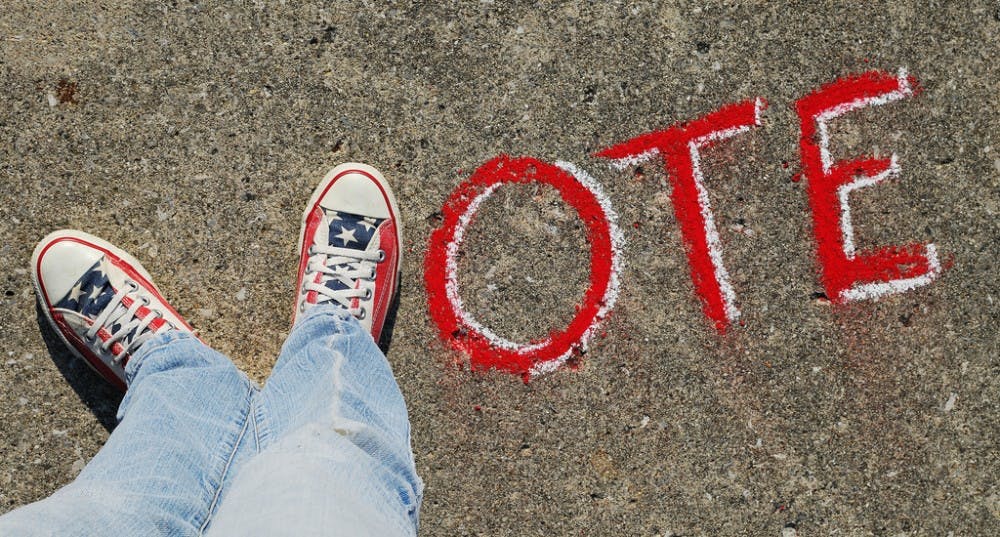The following piece, written by the editorial editors, reflects the majority opinion of the editorial board.
At 85 million strong, Millennials are now the largest demographic of the U.S. population, surpassing Baby Boomers by almost 20 million.
With the 2016 presidential race in full swing and the Ohio primaries less than two months away, Millennials, specifically those on college campuses like Miami's, are poised to have a significant say not just in who our next president is, but in the direction the U.S. political system takes.
Twenty-two year-olds now make up the biggest chunk of the U.S. voting population. Yet, the U.S. political system seems to be lacking in the generation's voice. Millennials determine the trends in culture, technology and fashion, so why not government?
A survey by Harvard's Institute of Politics suggests that part of the reason is Millennials are distrustful of traditional forms of political engagement - i.e. democrats vs. republicans and, apparently, voting in general. Fifty percent of Millennials define themselves as independents and 43 percent of Millennials questioned said it did not matter who is elected president because "Washington is broken."
There is a common view held by Millenials that elections have been less about policies and more about how much money a candidate can raise. Millennials have a hard time identifying with either of the dominant political parties in the United States because very few Millennials have stakes in high-profit institutions that support candidates and are, conversely, supported by candidates. This feeling of alienation among the Millennial generation creates the notion that their opinions and votes "don't matter."
This begs the question though, what about 2016? In a year where traditional presidential candidates have been kicked out of the spotlight by independent and anti-establishment ones, what can we do differently? Why and how should Millennials realize the stakes are high for them as well, and that they do have a say in the government?
According to the 2015 millennial impact report, Millennials are more likely to donate, volunteer and participate when recruited or influenced by their peers, not their elders.
Something that seems to be lacking, at least on Miami's campus, is the number of students who are involved in political campaigns.
Anecdotal accounts seem to show that Millennials want politics to work instantly (whether this can be attributed to the 21st century mentality of instant everything, i.e. fast food, fast internet and fast devices, is up for debate). An outcome of this is that, while Millennials are invested in one, widely advertised political seat, they forget about the more important seats at the congressional and state levels.
This can be seen in Millennials' lackluster turnout for the midterm elections in comparison to the wave that helped re-elect President Obama in 2012. Millennials are happy to post a Facebook status or tweet about how broken Washington is, but we're not so enthused about voting in the midterm elections that ruined any chance of giving the candidate they were crazy about a cooperative congress.
Local governments could benefit from more millennial involvement, as well. Everybody worries about the presidency, but they don't care about who is sitting on their city council - a governing body that holds much more sway in our daily lives. That is left up to the 'older people.'
Enjoy what you're reading?
Signup for our newsletter
Presidential candidates make promises they cannot keep without the help of Congress and local governments. Voters can't focus on something for one day of the year and expect the political culture to follow suit for the other 364 days. Political involvement requires constant engagement.
We just need to get involved.




